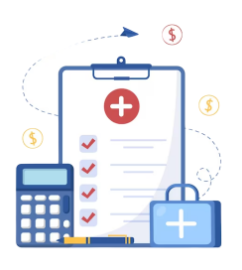Midwest Tax Planner HTTPS : / /WWW . ACCOUNTING-USA . COM Helping Start a Plan To Reduce Tax Liability Up to 50% in next 30 days! Ph: (913) 210-4765 ADMIN@ACCOUNTING-USA.COM Form 1099-MISC, Miscellaneous Income, Reporting Jew Filing Date :orm 1099-MISC is due to the [RS by January 31 of the fol- owing year when you are reporting non-employee com- yensation payments in box 7. Otherwise, file by February S if filing by paper, or March 31 if filing electronically. he due dates for furnishing payee statements remain the ame at January 31 of the following year. "ho Must File ile Form 1099-MISC, Miscellaneous Income, for each 'erson to whom you have paid during the year. At least $10 in royalties or broker payments in lieu of dividends or tax-exempt interest, At least $600 in: - Rents, — Services performed by someone who is not your employee (including parts and materials), Prizes and awards, — Other income payments, Medical and health care payments, — Crop insurance proceeds, — Cash payments for fish (or other aquatic life) you purchase from anyone engaged in the trade or busi- ness of catching fish, — Generally, the cash paid from a notional principal contract to an individual, partnership, or estate, — Payments to an attorney. See Paymenfs 10 Attorneys, later, or
— Any Fishing boat proceeds
In addition, use Form 1099-MISC to report that you made direct sales of at least $5,000 of consumer prod- ucts to a buyer for resale anywhere other than a perma- nenl retail establishment. You must also file Form 1099-MISC for each person from whom you have withheld any federal income tax under the backup withholding rules regardless of the amount of the payment. Trade or Business Reporting Only Report on Form 1099-MISC only when payments are made in the course of your trade or business. Personal payments are not reportable. You are engaged in a trade or business if you operate for gain or profit. However, nonprofit organizations are considered to be engaged in a trade or business and are subject to these report- ing requirements. Other organizations subject to these reporting requirements include trusts of qualified pen- Sion or profit-sharing plans of employers, certain or- ganizations exempt from tax under section 501(c) 01 501(d), farmers' cooperatives that are exempt from tax under section 521, and widely held fixed investment trusts. Payments by federal, state, or local government agencies are also reportable. Exceptions: Some payments do not have to be reported on Form 1099-MISC, although they may be taxable the recipient. Payments for which a Form 1099-MISC is not required include payments to a corporation (in- cluding a limited liability company (LLC) that is treated as a C or S corporation). But see Reponable Payments fc Corporations, later.
Reportable Payments to Corporations
rhe following payments made to corporations generally
must be reported on Form 1099-MISC.
• Medical and health care payments,
• Fish purchases for cash,
• Attorneys' fees,
• Gross proceeds paid to an attorney,
• Substitute payments in lieu of dividends or tax-
exempt interest, and
• Payments by a federal executive agency for services(vendors).
Payments to Attorneyrhe term "attorney" includes a law firm or other provider of legal services. Attorneys' fees of $600 or more paid in the course of your trade or business are reportable on box 7 of Form 1099-MISC. Gross proceeds paid to attorneys. Report in box 14 of Form 1099-MISC payments that:
• Are made to an attorney in the course of your trade or business in connection with legal services, for example, as in a settlement agreement
• Total S600 or more, and
• Are not reportable by you in box 7.
Payments to corporations for legal services. The exemption from reporting payments made to corporations does not apply to payments for legal services. Therefore, you must report attorneys' fees (in box 7) or gross proceeds (in box 14) as described earlier to corporations that provide legal services.
Penalties
Penalties for failure to file correct information returns and/or to furnish correct payee statements have increased and are now subject to inflationary adjustments. Information returns and payee statements include, for example, Forms 1098, 1099, W-2G and W-2.
rhe penalty rates and maximums for failure to file correct information returns and/or to furnish correct payee statements are as follows.
Small Businesses with Gross Receipts Of S5 Million Or Less
fime Returns Fi/ed'FurnisI,'ed
Returns Due i/i/,'l Through
Not more than 30 days late
(by March 30 if the due date is
February 28)
31 days late but by August 1
Atter August I or not at all
Intentional disregard
'Adjusted for inflation.
S5C per return/
maximum
SIOO per return/
S532,OV maximum
S26J per return/
maximum
*30s per return,'no limitation
Large Businesses With Gross Receipts Of More Than Million and Governmental Entities
Returns Fi/ed'FL'rnis/red
Returns Through
Not than 30 days late
(by March 30 it the due date is
February 28)
31 days late but by August 1
After August I or not at all
Intentional disregard
'Adjusted for inflation.
S50 per return/
maximum
Sloo per return/
maximum
per return/
193,000' maximum
per return/no limitation
The amount of the penalty is based on when you file the correct information return or furnish the correct payee statement. A penalty for failure to file a correct information return is separate from the penalty for failure furnish the correct payee statement. For example, if you fail to file a correct Form 1099-MISC with the IRS and don't provide a correct Form 1099-MISC statement the payee, you may be subject to two separate penalties
Contact Us
There are many events that occur during the year thatcan affect your tax situation. Preparation Lif Vtlur thx return involves summarizing transactions and events that occurred during the prior year. In most situations, treatment is firmly established at the time the transaction occurs. However, negative tax ettects can be avoided proper planning, Please contact us in advance if you have questions about the tax effects of a transaction or event. including the following:
• Pension nr IRA distributions
• Significant change in income or
deductions.
• Job change.
• Marriage.
• age or 70'".
• Sale or purchase o' a business,
• Sale or purchase 01 a residence
or other real estate.
• Retirement
• Notice from IRSor other
revenue department
• Divorce Or separation.
• Sell-employment,
• Charitable contributions
ot propartV in excess Of
SS,COO.








